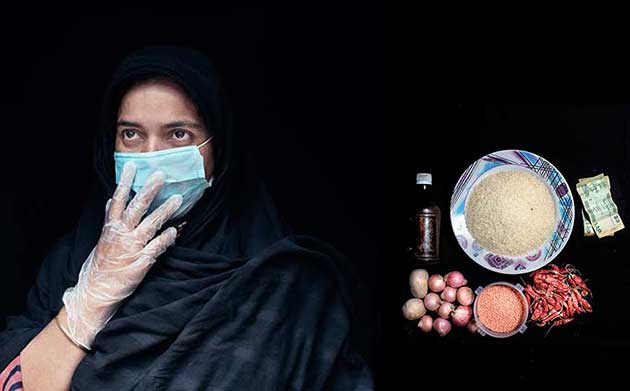
Amid Covid-19 Hunger Fear Mounts in Bangladesh
30 April 2020 Asupan Warta / Newsfeed 0 CommentBy Mohammad Rakibul HasanDHAKA, Bangladesh, Apr 29 2020 (IPS) The world is at risk of widespread famines caused by the coronavirus pandemic. The devastating economic impact of Covid-19 is seeing a huge rise globally in the number of hungry people. Hamida Begum, a domestic worker in Bangladesh who is now […]
Read More
Andalkan diri sendiri, program kartu prakerja tak jamin dapat kerja
Asupan Warta / Newsfeed 0 CommentPemerintah menegaskan program pelatihan kartu prakerja tidak menjamin peserta langsung mendapatkan pekerjaan
Read More
Seekor anak gajah ditemukan mati di Aceh Jaya
29 April 2020 Asupan Warta / Newsfeed 0 CommentSeekor anak gajah ditemukan mati di kawasan Desa Gampong Baroh, Kecamatan Setia Bakti, Kabupaten Aceh Jaya, Rabu. “Ada seekor anak gajah yang mati, kita bersama Badan Konservasi Sumberdaya Alam (BKSDA) dan kepolisian …
Read MoreWorld: With incomes curtailed overnight, thousands will struggle to find food
Asupan Warta / Newsfeed 0 CommentCountry: World Source: International Committee of the Red Cross The pandemic will be felt acutely in conflict zones, where millions get by with little or no health care, food, water and electricity, precarious livelihoods, volatile prices and destroyed infrastructure.
Read MoreWhere the wild things are: how nature might respond as coronavirus keeps humans indoors
Asupan Warta / Newsfeed 0 CommentIntriguing things sometimes happen in places deserted by people. Plants creep back, animals return and, slowly, birdsong fills the air. The coronavirus pandemic means public spaces the world over have been temporarily abandoned. Major roads are all but empty and public squares are eerily quiet. In response, nature is in […]
Read MoreHow does a country of 1.3 billion have 1,000 deaths?
Asupan Warta / Newsfeed 0 CommentLess than a month ago, India’s future looked dire.
Read MoreCOVID-19: Federal Stimulus Today, Federal Investigation Tomorrow: What TARP Can Tell Us about the Coming Wave of CARES Act Enforcement
Asupan Warta / Newsfeed 0 Comment
UI gelar seleksi masuk secara online, berikut jadwal dan biayanya
Asupan Warta / Newsfeed 0 CommentUniversitas Indonesia akan menggelar Seleksi Masuk Universitas Indonesia (SIMAK UI) 2020 secara online
Read MoreMexico: A pesar de las restricciones por la pandemia, las personas que huyen de la violencia y la persecución continúan solicitando asilo en México
Asupan Warta / Newsfeed 0 CommentCountries: Cuba, El Salvador, Haiti, Honduras, Mexico, Venezuela (Bolivarian Republic of) Source: UN High Commissioner for Refugees Desde el día 16 de marzo, la Agencia de la ONU para los Refugiados ha apoyado la salida de 434 personas solicitantes de asilo de los centros de detención para inmigrantes.
Read MoreWhy gender-sensitive social protection is critical to the COVID-19 response in low- and middle-income countries
Asupan Warta / Newsfeed 0 CommentIssue Post April 28, 2020 Why gender-sensitive social protection is critical to the COVID-19 response in low- and middle-income countries Melissa Hidrobo Neha Kumar Tia Palermo Amber Peterman Shalini Roy Governments ramping up pandemic assistance programs must take care to see they don’t widen inequalities.
Read More